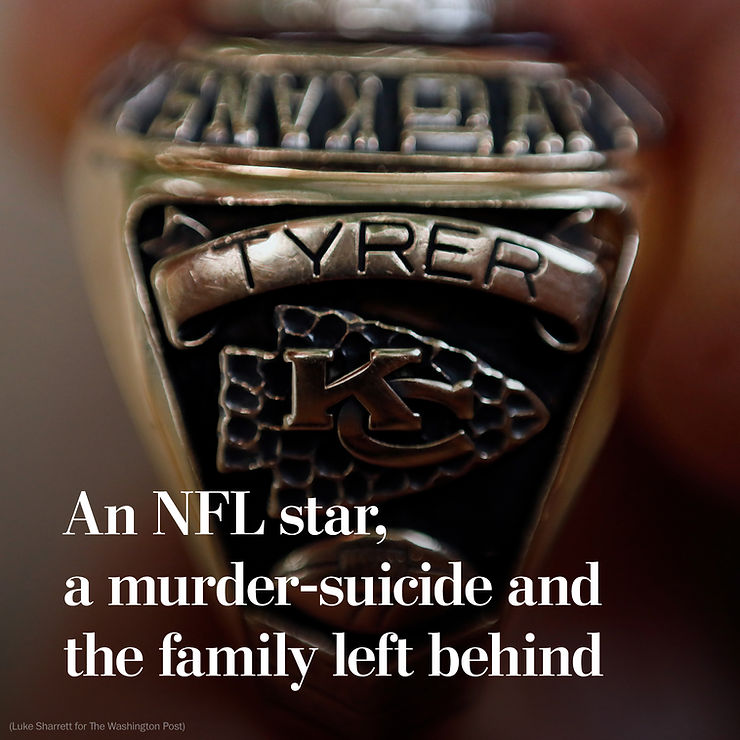By: Leon Chen
Jim Tyrer, a professional football player in the 1960s, was a unique physical marvel at 6-foot-6 and 280 pounds. His size did not, however, interfere with his ability to move with the grace of a ballet dancer. He displayed the talents he had while guiding his high school basketball team to a Central Ohio title by having quick feet and hands. Tyrer won multiple awards for his outstanding blocking as his Dallas Texans and Kansas City Chiefs amassed three AFL championships. He participated in nine Pro Bowls and had six All-Pro honors. He was an offensive lineman who anchored the offensive line that dominated Minnesota’s front four in Super Bowl IV. He was one of the tackles selected to the legendary All-AFL team.
In a turn of events that shocked the whole world, he shot his wife Martha before shooting himself in the early morning hours of September 15, 1980, after waking up and fumbling for the loaded pistol he kept in his bedroom. Jim Tyrer was 41 years old, and Martha Tyrer was 40. Three of their four children were living with them at the time. The murder-suicide generated dramatic news stories across the nation.
With his son Jason, Tyrer had spent the previous afternoon at Arrowhead Stadium. The two had seen the Seattle Seahawks defeat the Kansas City Chiefs by a whisker. Later, spectators next to the pair remembered Tyrer as being strangely enthralled by the event. He remained still for the majority of the game, seemingly preoccupied but distantly watching the field.
Tyrer’s irrational violence perplexed his loved ones, teammates, and coach. It appeared inconsistent with the giant’s peaceful, collegiate demeanor. Michael Oriard, a teammate of Tyrer’s, wrote a football memoir titled The End of Autumn, which was released in 1982. Oriard strained to make sense of the incomprehensible and looked for hints to explain the profound change that appeared to have engulfed Tyrer ever since his retirement from professional football in 1974. To those who knew him, Jim Tyrer “was the unlikeliest suicide-murderer,” Oriard wrote.
He added that despite Tyrer’s entrepreneurship, his post-football ventures ultimately came to three failing companies and their accumulated debts. Tyrer was given a $25,000 contract by the Chiefs to scout college prospects, but he declined it.
We shouldn’t lose sight of Martha Tyrer or the grief of her passing while we try to understand the Chiefs lineman’s legacy. Ultimately, compared to Martha’s death, Jim’s football legacy is meaningless. If they introduce him into the Hall of Fame, the NFL will be required to mention how his life ended. And the NFL isn’t interested in going there.











